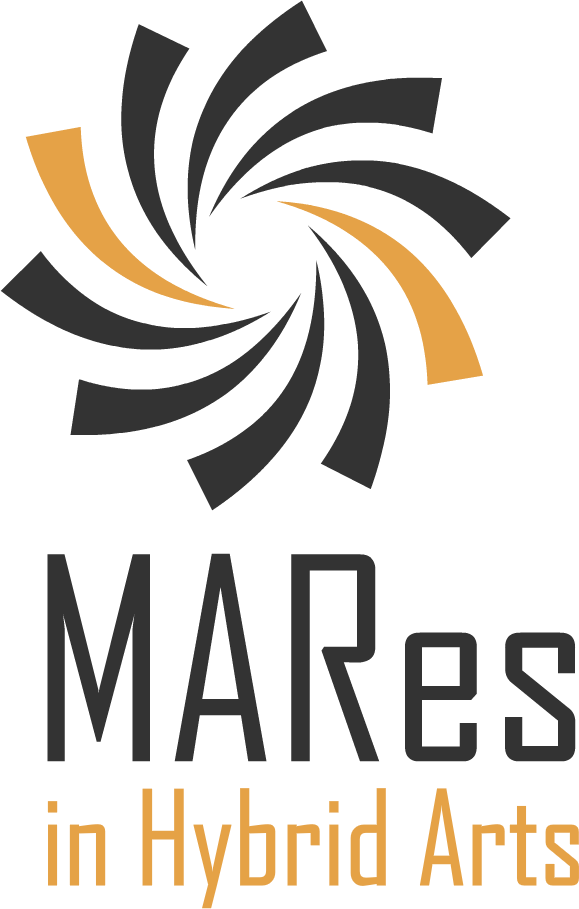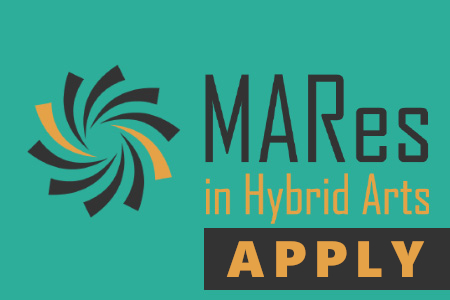Article 1. Responsible for the Coordination of an Integrated Distance Education System
1. By decision of the Committee of the Post Graduate Program (PGP) one (at least) natural person is designated as the Coordinator of an integrated e-learning system (E-learning Coordinator) and their contact details are shared with all users of the system.
2. The E-learning Coordinator is a person who has the necessary knowledge to provide support and any relevant assistance to students and staff who use the integrated distance learning system.
Article 2. Access to e-learning
1. The organization of distance education teaching takes into account the possibilities of students to participate without exclusion. For this reason, all those involved (teaching staff, supervisors, students, technical and other staff) are offered a multitude of digital services that ensure seamless access to e-learning.
2. The supporting digital services related to e-learning are detailed in the relevant Guide posted on the official website of the Ionian University (https://ionio.gr/gr/services/it-noc/noc/) and include:
A) Access to a modern distance learning platform The integrated distance learning system that will be used for modern distance education should have the following features: a) the use of video conferencing and virtual online classroom technologies so that the faculty and the students who are in different spaces, receive instant feedback at the same time. In particular, the system should support: aa) real-time visual and audio communication using appropriate equipment (computers, cameras, microphones, speakers, headphones, high-speed networking and video conferencing software) so that faculty and students can have voice and visual communication, while they are in different places, ab) the possibility of sharing applications and documents (application and document sharing), c) the possibility of using an electronic board, b) the possibility of accessing chat rooms both between faculty and student as well as between students for any cooperation, exchange of opinions and preparation of joint tasks.
B) Access to an asynchronous distance learning platform. The integrated distance learning system to be used for asynchronous distance education should support a Learning Management System (LMS), which should contain: a) Learning Content Management System (LCMS) and b) Development Application and Course Authoring - Authoring Tool. In this application, educational material may be posted per course or other educational activity, which may include notes, presentations, exercises/activities with the corresponding feedback, indicative solutions thereof, as well as multimodal material (videotaped lectures, as long as the current legislation on personal data protection), simulations, interactive educational material with the methodology of distance education, etc.). Educational materials of all kinds are provided exclusively for the educational use of students and are protected for any intellectual property rights in accordance with the provisions of Law 2121/1993 (A' 25)
C) Access to the VPN (VirtualPrivateNetwork) remote access service of the Ionian University 3. The user accreditation process and access rights per user category are defined by the Digital Governance Unit of the Ionian University or the Institution's administrative structure until such definition.
Article 3. Student registration procedure in the student register of the Ionian University
1. Students, after being accepted by the PGP, submit a file with their information. The PGP secretariat registers their information and creates an account for each of them in the electronic student log of the Ionian University as a postgraduate student, assigning them a Registration Number. It then proceeds to issue an activation card for each student which includes the institutional email and the students' access codes to the Ionian University's online services (opencourses, dias system, academic ID, etc.). Under the care of the Secretariat, the activation slips are sent by personal e-mails to the students.
Article 4. Teaching staff
1. Each faculty member receives access information to the systems of modern and asynchronous education as well as to the electronic student log of the department with teaching staff rights.
2. For each faculty member, an assessment of their capabilities to meet the requirements of distance teaching takes place, under the responsibility of the Curriculum Committee. For the evaluation, the Curriculum Committee relies on the curriculum vitae of the faculty member as well as a practical test. The Curriculum Committee may make suggestions for improvement to the respective faculty member (e.g. attendance at training seminars).
3. The lecturers who assume the role of academic adviser must provide support to the respective students in the use of e-learning methods by any appropriate means.
4. The process of evaluating the digital skills of the teaching staff participating in a remote PGS is carried out by the PGS director, checking whether they adequately use the systems of modern and asynchronous education as well as by the students during it.
5. The process of upgrading the digital skills of the teaching staff who participate in remote PGS concerns their participation in seminars and activities implemented by the Teaching and Learning Support Center of the Ionian University.
Article 5. Student evaluation issues
1. When assessing students by distance methods, depending on the nature of the course, the most appropriate method must be chosen in order to ensure objectivity, transparency and prevention of plagiarism. Analytically: a) The presence of an invigilator is necessary during the individual oral group examination.
b) When conducting a written test, it is necessary to use an open camera throughout its duration and to use examination subjects that do not require closed texts.
b) Students' works are subject to a plagiarism check every time they are submitted by the system that will be available from the Ionian University each time. The course instructor is responsible for submitting to the plagiarism check process. Issues of plagiarism are serious and the relevant PGP Committee must be informed of each incident. Plagiarism may result in the expulsion of a student from the PGP regardless of the specific weight of any work.
Article 6. Pedagogical Framework
1. The pedagogical framework for planning and implementing courses and other educational activities with distance education methods includes various elements that influence the way in which educational activities at a distance should be planned and implemented. In each course/educational module, the following must be defined:
● Objectives and content: Defining clear educational objectives and content to be covered in the distance learning courses.
● Assessment: Learning assessment methods to be used to measure student progress.
● Environment and technology: Choosing appropriate platforms or tools to provide a learning environment and conduct distance activities. The software is selected from those available at the Ionian University and from software freely available on the internet.
● Interaction and collaboration: The ways to promote interaction between students and faculty members, as well as to promote collaboration at a distance.
● Encouragement and support: The faculty members must provide support and encouragement to students for participation and successful progress in distance learning.
● Adaptation and evaluation: The faculty members must review and adapt the distance education methods based on the needs of the students and the results of the learning process.
● Development of educational materials: The specially designed educational materials of the distance education combined with the teaching by the instructor, advising and motivating the learners, encourage the learner to operate autonomously and to learn mainly through the process of self-learning.
Article 7. Technical issues
1. The Digital Governance Unit or the administrative structure of the Foundation in case it has not yet been established, oversees the technological infrastructure of the Ionian University, the technical support, maintenance and upgrading of the infrastructure and technologies to support the distance education process, as and the obligations of each user
Article 8. Security and personal data matters
1. The infrastructures used by PGP in the context of e-learning should be consistent with the Ionian University's information systems security policy, information privacy management policy, protection of users' personal data and cyber security.
2. The personal data protection and compliance policy is in accordance with the provisions of the General Data Protection Regulation and Law 4624/2019.
3. The processing of personal data during the remote examination process is carried out in such a way as to achieve the appropriate level of security against risks such as accidental or unlawful destruction, loss, alteration, unauthorized disclosure or access to personal data transmitted, stored or submitted by ' another way in processing. Teaching staff, supervisors and persons providing technical and/or administrative support (such as the platform administrator) are bound by confidentiality obligations. The choice of the electronic platform for carrying out the examination by remote methods is carried out based on the criterion of reliability and the provision of guarantees in terms of the protection of personal data
4. The personal data of the users (faculty members and students) during the distance implementation of the Postgraduate Studies Program and during the use of the electronic platform are processed exclusively for the purpose of providing access to the teaching material and the provided synchronous or asynchronous distance education services as well as for the management of the provided educational activity within the framework of the postgraduate studies program, in accordance with the provisions of the General Data Protection Regulation and Law 4624/2019. Responsible for data processing within the meaning of article 4 of the General Data Protection Regulation is the Higher Educational Institution, which undertakes the administrative support of the PGP.
5. The processing of users' personal data is carried out in accordance with e) on paragraph 1 and b) on paragraph 3 of article 6 and g) on paragraph 2 of article 9 of the EU Regulation 2016/679 as well as articles 5 and 22 paragraph 2 a) of Law 4624/2019.
6. The transparency of data processing is ensured by providing users with all information about its essential characteristics. Users have the right to access the personal data concerning them and to information about their processing, the right to correct inaccurate or complete incomplete data, under certain conditions the right to delete their data as well as the right to limit the processing, the right to object to the processing at any time and for reasons related to their particular situation.
7. Remote evaluation procedures must be impartial and in any case user data must be protected based on the provisions of articles 6 and 7 of joint ministerial decision under items 18137/Z1 (Β΄1079/2023) or as defined each time by corresponding provisions.
Article 9. Additional Criteria for periodic internal evaluation of the program
1. The additional internal evaluation criteria of the PGP because it is implemented by distance methods are determined by the Quality Assurance Unit of the Ionian University and may concern the following: a) the level of technological support, b) the degree to which the educational units have the appropriate organization and framework for online teaching, c)
the training of teaching staff for the implementation of distance teaching.




 Special Regulation for the e-Learning Application
Special Regulation for the e-Learning Application



